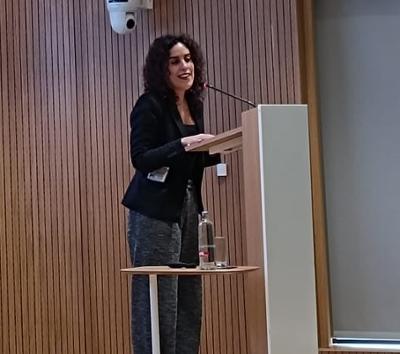

Inés Sandoval (Castile-La Mancha): energy renovation of housing must be permanently supported
"The energy renovation of housing must be accompanied by permanent support", so says Inés Sandoval, Director General for Housing of the Regional Government of Castile-La Mancha. She stated, during the presentation of the latest FEGECA report, that energy renovation "is not a luxury available to a few, but a necessity to improve the health and quality of life of all households”. She added that Castilla-La Mancha has already published calls for grants worth more than 200 million euros.
Inés Sandoval, Director General for Housing of the Regional Government of Castile-La Mancha, stated that, "in Castilla-La Mancha we have achieved a greater social awareness of the importance of energy efficient renovation of our homes". She went on the explain that the Regional Government has already published calls for grants worth more than €200 million to improve energy efficiency, funds that have already been fully allocated. "Much of this success is due to the drive of the sector, public financing and recent inflationary environment, with a rise in utility bills that has also made families more aware of the need to invest in energy efficiency in their homes," she added.
Sandoval also pointed to the age of the existing housing stock in Spain, most of which was built before the Technical Building Code of 1980. In this context, she referred to the costs of implementing renewable heating systems, "which many families cannot afford if they are not subsidised". "Installing certain systems, such as aerothermal and geothermal energy, is quite complex because, as buildings are currently designed, there is no space and generating it means an extra investment to adapt residential properties. Fortunately, other alternatives are also emerging, such as biomethane, which is already being used in the natural gas distribution network itself, and which makes it much easier to implement renewable energies in homes".
Another handicap pointed out was the shortage of labour, "We need professionals and technicians who are qualified, who know how to install and maintain". Another problem is the uncertainty surrounding future renewable energy legislation. "We don't know what direction they will take, so many consumers decide not to change their appliances, no matter how old or obsolete they are, because they don't know if the future will be aerothermal or biomethane, etc. It's the same with vehicles, there is so much uncertainty that we don't know whether we have to buy a hybrid or an electric car. All this is slowing down the transition to renewable energy. "
New calls for grants
Another of the challenges highlighted by Sandoval was the need to "implement the necessary mechanisms to ensure that there are permanent grants for energy efficiency". On this point, she warned, "2025 is going to be a complicated and difficult year, because the European Next Generation funds are already exhausted". However, she added that "in 2026 the new State Housing Plan will be in place, with new supports for renovation, and we will have to implement the Social Climate Fund, which is generating a lot of expectation, and more funding is expected to be allocated to energy renovation in housing". But all this is planned for next year, so in Castilla-La Mancha they have considered how to continue promoting aid for energy renovation in housing during the current financial year, and have decided to do so by using other European funds, the ERDF: "We will be launching a call for grants that will be very similar to the Next Generation's programme 3 for residential buildings".




